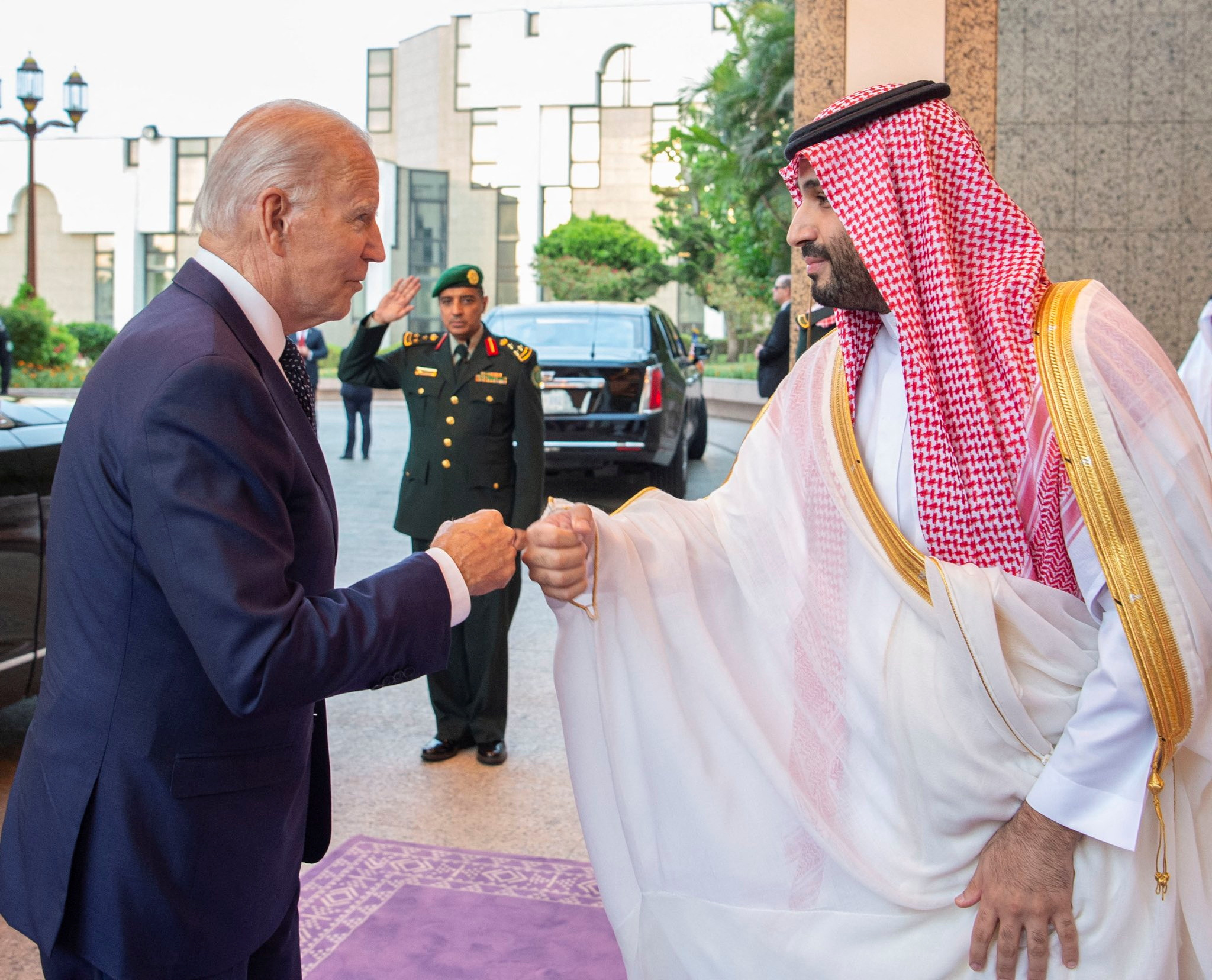Biden thinks US needs to 'reevaluate' relationship with Saudi Arabia: White House
Saudi Arabia and others said last week they would cut oil production.
President Joe Biden thinks the United States needs to "reevaluate" its relationship with Saudi Arabia, especially in light of the decision by the OPEC+ oil cartel to cut production, the White House said Tuesday.
"I think the president's been very clear that this is a relationship that we need to continue to reevaluate, that we need to be willing to revisit," White House spokesman John Kirby said in an interview with CNN. "And certainly in light of the OPEC decision, I think that's where he is."
OPEC+, a group of oil-producing countries led by Saudi Arabia and Russia, announced last week it would significantly slash production in order to boost oil prices.

Kirby said Biden "is going to be willing to work with Congress as we think about what the right relationship with Saudi Arabia needs to be going forward."
Later, White House press secretary Karine Jean-Pierre said, "Last week, when OPEC made the decision to align their energy policy with Russia's war ... further underscores that reasoning to realign that relationship, to reevaluate that relationship with Saudi Arabia."
Sen. Bob Menendez, the New Jersey Democrat who chairs the Senate Foreign Relations Committee, on Monday called on the U.S. to "immediately freeze all aspects of our cooperation with Saudi Arabia, including any arms sales and security cooperation beyond what is absolutely necessary to defend U.S. personnel and interests."

Menendez cited Saudi Arabia's financial support for Russia after its invasion of Ukraine.
His get-tough-on-Saudi-Arabia stance seems to be gaining traction with other Senate Democrats as the administration eyes conversations with Congress about the U.S. relationship with Saudi Arabia.
On Tuesday, during a brief meeting meant to tee-up consideration of the National Defense Authorization Act next month, Senate Armed Services Chairman Jack Reed, a Rhode Island Democrat, told reporters that he is "very supportive of Menendez" and his efforts to end arm sales and security cooperation with Saudi Arabia.
"I think we should look carefully at everything we're sending them," Reed said. "Because their inability to cooperate with the West and their willingness to cooperate with Russia is very disturbing."
Last week, Democratic Sen. Dick Durbin of Illinois, who chairs the Senate Judiciary Committee, called on the Senate to pass a bill that would allow the Justice Department to sue oil cartel members for antitrust violations, including, he said, "price fixing by OPEC" and its partners.
Sen. Angus King, a Vermont independent who caucuses with Democrats, said he agrees with proposals to cease sending arms to Saudi Arabia.
"Why should we? If they don't have any ore concern for international security and stability of the world economy, why should we be helping them?" King said.
Biden would be willing to start conversations with Congress "right away," Kirby said.

Following the administration's announced intention to work with with Congress, Democrats Sen. Richard Blumenthal and Rep. Roe Khanna introduced legislation Tuesday that would stop U.S. arms sales to Saudi Arabia.
"This simple yet urgent measure would halt U.S. arms sales to Saudi Arabia after their deeply offensive, destructive blunder: siding with Russia at this historic moment. Saudis must reverse their oil supply cuts, which aid and abet Russia’s savage criminal invasion, endanger the world economy, and threaten higher gas prices at U.S. pumps. We cannot continue selling highly sensitive arms technology to a nation aligned with an abhorrent terrorist adversary,” Blumenthal said.
The move by OPEC+ could send oil prices higher, which in turn, could raise prices at the gas pump in the United States. Higher gas prices could hurt Biden and Democrats politically heading into this fall's midterm elections.
Biden traveled to Saudi Arabia in June to, in part, push the kingdom's leaders to increase production.
After OPEC+ announced the production cut last week, Biden's top economic adviser, Brian Deese, told reporters the White House would "be assessing and consulting closely with Congress around a range of issues on the back end of this."
Deese, the director of the White House National Economic Council, declined to say whether the Biden administration thought the U.S. should continue to provide weapons and other military assistance to Saudi Arabia if the Gulf nation was not willing to keep the price of gas in the U.S. lower.




